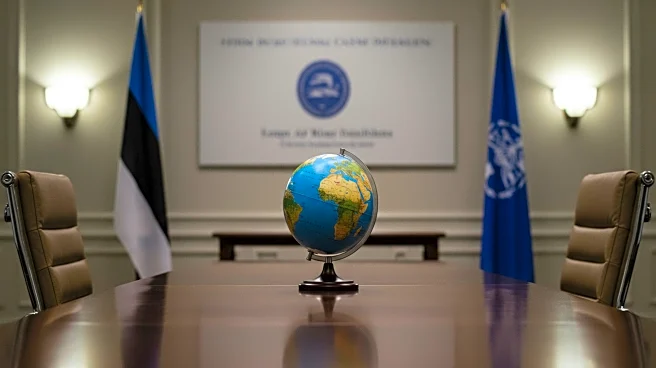What's Happening?
Estonian Foreign Minister Margus Tsahkna has expressed concerns regarding the upcoming summit between President Trump and Russian President Vladimir Putin. Tsahkna, who participated in a European Union Foreign Affairs Council meeting, emphasized the importance of Ukraine's involvement in any discussions about its future. He highlighted the historical context of Russia's actions, drawing parallels to past events such as the Munich Agreement of 1938. Tsahkna stressed that any agreements made without Ukraine and Europe could have significant consequences, and he hopes President Trump will not concede to Putin's demands.
Why It's Important?
The meeting between President Trump and President Putin holds significant geopolitical implications, particularly for European nations like Estonia that share a border with Russia. Tsahkna's comments underscore the potential risks of negotiating with Russia without the involvement of affected parties like Ukraine. The outcome of this summit could influence the balance of power in Eastern Europe and affect NATO's strategic positioning. Estonia's stance reflects broader concerns within the EU about Russia's aggressive policies and the need for a united front to prevent further territorial ambitions.
What's Next?
The summit is expected to address the ongoing conflict in Ukraine, with hopes for an unconditional ceasefire. European leaders, including Tsahkna, anticipate increased military and financial support for Ukraine and the implementation of additional sanctions against Russia. The meeting's outcome could shape future diplomatic and military strategies in the region, with potential impacts on international relations and security policies.
Beyond the Headlines
Tsahkna's remarks highlight the enduring threat posed by Russia to neighboring countries and the importance of maintaining a strong defense posture. Estonia's readiness to host nuclear-capable jets and its significant defense spending reflect the broader security concerns in the region. The summit's discussions could also influence global perceptions of U.S.-Russia relations and the role of international diplomacy in resolving conflicts.











